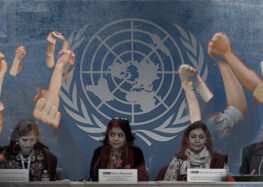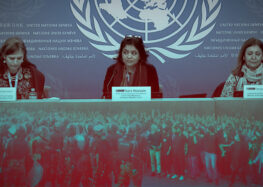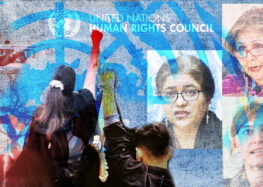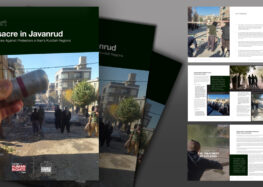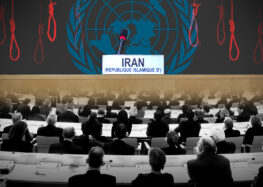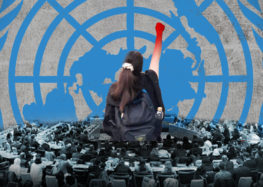“No,” Says Head of Iran’s Judiciary to Special Rapporteur on Human Rights
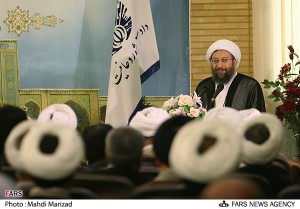
Head of Iran's Judiciary, Sadeq Larijani, made public statements stating Iran would not accept the new Special Rapporteur on Human Rights for Iran. Since 2005, Iran has not allowed any Special Rapporteurs to enter the country.
Only a few weeks after the United Nation’s Human Rights Council appointed Maldivian Ahmed Shaheed as UN’s Special Rapporteur on Human Rights for Iran, the Head of Iran’s Judiciary, Sadegh Larijani, made public statements denying access to the Special Rapporteur. “Our policy is not to accept the Rapporteur. We believe that we are among the first countries to claim observing human rights,” Larijani said. So far, Iranian Members of Parliament and other political figures close to the government have admonished and criticized the appointment of a Special Rapporteur, but the Iranian Judiciary had so far maintained silence about it. Given the current climate, it seems unlikely the Special Rapporteur will be traveling to Iran anytime soon.
The previous silence of the Iranian Judiciary and Ministry of Foreign Affairs seemed to mean an evaluation of the current situation was being made in preparation for the arrival of the Special Rapporter in Iran. However, since the resolution was approved last March, the Iranian Parliament reacted negatively to the requirement of the appointment of a Special Rapporteur.
In statements made during a televised appearance, reported widely by state news agencies, Larijani attacked western states, saying that Iran is a supporter of human rights in the world. “In the human rights discussion, we will definitely have certain cooperation with the UN, but within logical frameworks and not as a tool against our country,” said Larijani. Like his brother Javad Larijani, Head of the Iranian Judiciary’s Human Rights Council, Sadegh Larijani criticized the US. “The US itself who attacked Iraq and Afghanistan and killed many people, claims it is pro-human rights; but we have not yet forgotten Guantanamo Bay and Abu Ghraib Prison.” Larijani characterized the issue of human rights as cultural, saying, “There is no reason the principles developed within a certain culture are expected as a general framework…thanks to Islam, we have been defenders of human rights for the past 1400 years, and in an atmosphere where girls were buried alive, Islam came and said that everyone is equal and all brothers.”
A few days ago, the Cultural Deputy of the Joint Armed Forces expressed his opinion on the subject of the Special Rapporteur and his presence in Iran. “In Iran, no one is expecting the so-called Special Rapporteur and it’s best if he changes his destination toward Washington or a hornet’s nest,” said Commander Seyed Massoud Jazayeri. “The US is now a center where tens of illegal prisons, torture, violations of the most basic human rights, sexual abuse of citizens and discrimination is observed in abundance,” he continued.
Despite these public statements, the First Deputy of the Iranian Judiciary, Ebrahim Raisi, said on 20 June that “the Special Rapporteur was determined by western states” and that “the Islamic Republic of Iran will review the arrival of the Special Rapporteur.”
“We will not accept the UN Special Rapporteur on Human Rights, as we fully recognize the hidden objectives and political intentions behind the human rights resolution against Iran,” said Zohreh Elahian, a member of Parliament from Tehran, in the past few days.
Though Iran’s Foreign Ministry officials and the Iranian Judiciary have not yet provided an official response to the presence of the UN Special Rapporteur on Human Rights for Iran, considering Sadegh Larijani’s statements, a visit appears highly unlikely. Since 2005, Iran has consistently refused to allow Special Rapporteurs on Human Rights to visit Iran.

